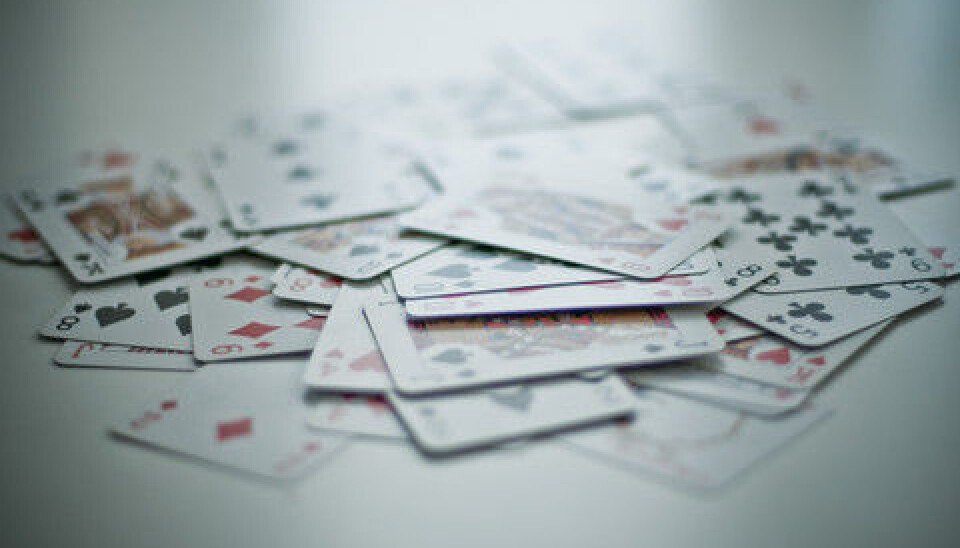
Gamblers get a kick out of making risky decisions
Compulsive gamblers get more excitement and pleasure from making risky decisions than from winning, new study shows.
You’re watching a gambler and a non-gambler in a gaming situation. The control person is trying very hard to win the game. Meanwhile, the gambler is trying to make the riskiest decisions, even though he’s fully aware that he’s unlikely to win the game.
The two players approach the game in different ways, but they are chasing the same reward in the shape of a shot of the brain’s ‘pleasure chemical’, dopamine.
A new Danish study has looked further into this mechanism:
”Our study basically consists of finding out why some people turn into compulsive gamblers and others don’t. The explanation could be that a gambler’s reward system is triggered by other factors than a non-gambler’s,” says Associate Professor Arne Møller, who conducted the study with colleagues at Aarhus University’s Department of Clinical Medicine – Center for Functionally Integrative Neuroscience.
Everyone started out being bored
Our findings help shed light on some basic mechanisms of addiction, and this is particularly important to understand for therapeutic purposes. We hope that our findings can lead to treatment forms that are more targeted to the individual gambler’s needs, so they can get a faster and greater effect from the treatment.
To find out whether the reward system in a compulsive gambler is different from that of a non-gambler, Møller and his colleagues scanned the participants’ brains while they were gambling on a computer.
The scans showed how the brains of the gamblers and the non-gamblers acted in a gaming situation.
The compulsive gamblers in the experiment were still active as gamblers, although they had a burning desire to stop.
In the first hour of the experiment, it was the computer that controlled the game, which consisted of picking the right card from four separate stacks.
In this first round the participants learned the rules of the game without having the chance of winning anything. Since the game was easy to learn and no profits were in sight, both the gamblers and the non-gamblers soon got bored.
Gamblers live dangerously
The next round was much more interesting, since the aim here was to win the game by picking the right cards. It soon turned out that the players were not picking cards randomly from the four stacks – because two of the stacks mainly consisted of bad cards.
This change required some attention from the two groups of players, but their focus remained widely different.
Whereas the non-gamblers responded by predominantly picking cards from the two ‘good’ stacks, the gambler group split into two subgroups: one group picked cards from the ‘good’ stacks and the other picked from the two ‘bad’ stacks.
“The gamblers who had decided to stop made the right decisions during the game and as a result, they won. The less motivated gamblers, on the other hand, made risky decisions. For this latter subgroup, the excitement of making a psychologically risky decision was the reward,” says Møller.
Dopamine levels determine the personality
To learn more about why some people become addicted to gambling or drugs, the researchers examined whether gambling and other forms of addiction are linked to a certain personality type, and their preliminary findings suggest that they are.
They found that it doesn’t take much to excite introverted people since they can usually make do with reading a book or watching a movie. They can get by with small fluctuations in their dopamine levels and therefore they do not become as easily addicted as other people.
Extroverted people, on the other hand, need much higher fluctuations in their dopamine levels to achieve satisfaction, which they do e.g. by jumping out from a high place. This increases the risk of becoming addicted.
“Our findings help shed light on some basic mechanisms of addiction, and this is particularly important to understand for therapeutic purposes,” says the researcher.
“We hope that our findings can lead to treatment forms that are more targeted to the individual gambler’s needs, so they can get a faster and greater effect from the treatment.”
-----------------------------
Read the Danish version of this story at videnskab.dk
Translated by: Dann Vinther











